asp.net程序通过Microsoft Azure中SAML协议实现单点登录
1. 新建应用程序
登录Azure门户,进入左侧菜单“企业应用程序--所有应用程序”,点“新建应用程序”, 继续点“创建你自己的应用程序”,如下图选择和录入名称:
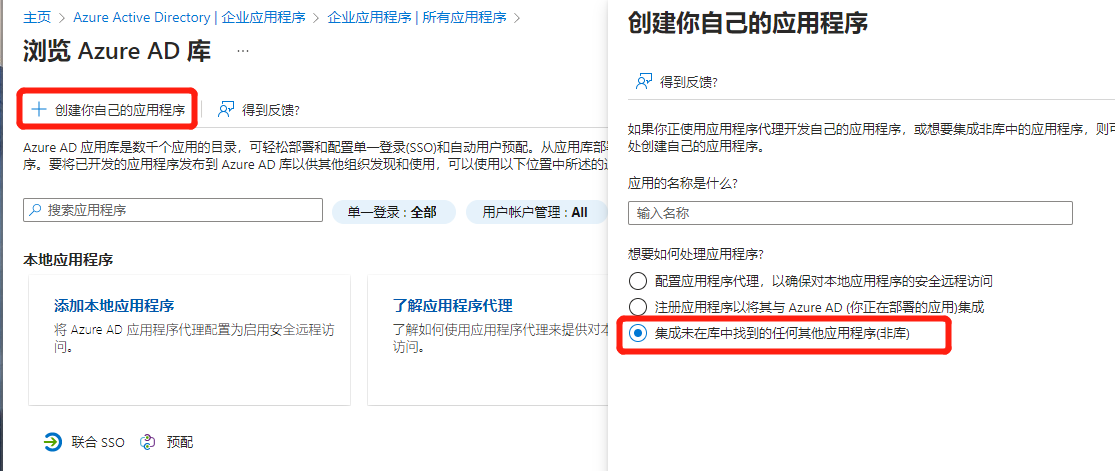
填好应用的名称、想要如何处理应用程序 必须选择第三个“继承未在库中找到的任何其他应用程序(非库)”,之后点“创建”按钮;
2. 单一登录设置
继续1中步骤,进入左侧菜单“单一登录”,选择单一登录方法为“SAML”,如下图:
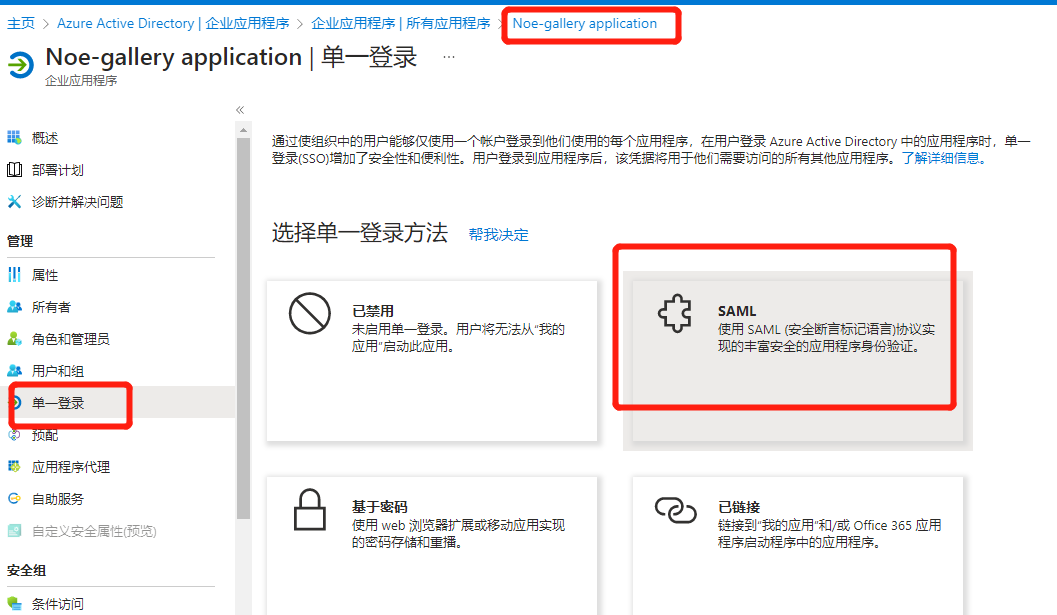
继续,编辑“基本SAML配置”,如下图:
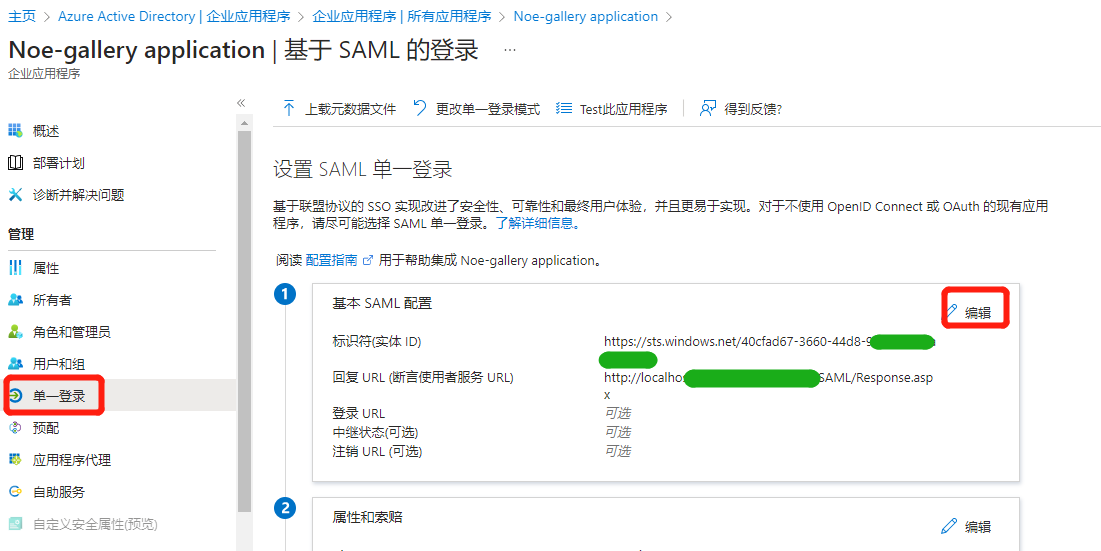
其中:
** 标识符(实体ID)**,从进入左侧菜单“应用注册”,双击进入该应用,进入左侧菜单“公开API”里复制,如下图:
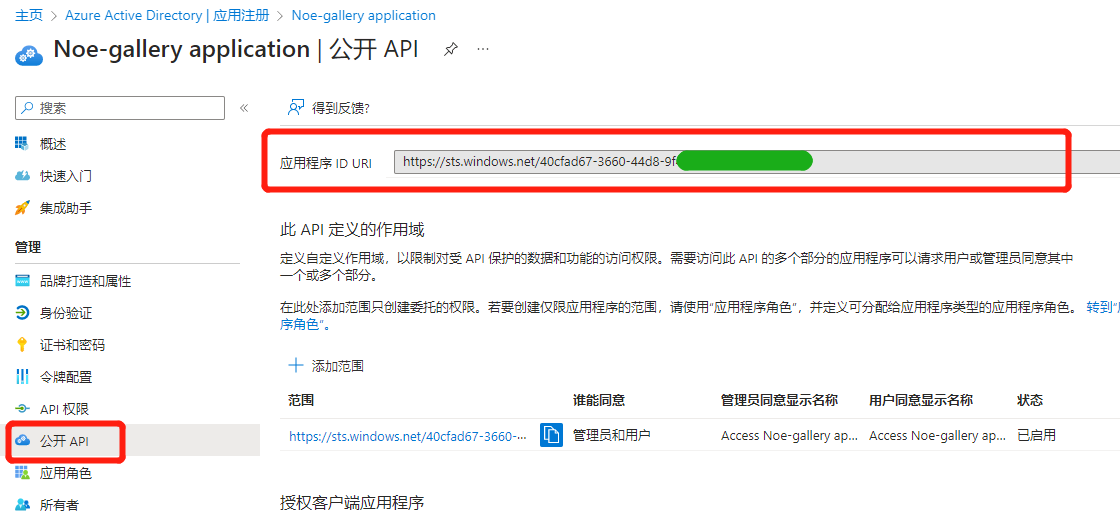
回执URL,就是你自己web程序中用来处理响应数据的页面,参见后面步骤中的Response.aspx页面;
3、将用户增加到该应用中,此处不赘述;
4、idp--->sp模式测试:
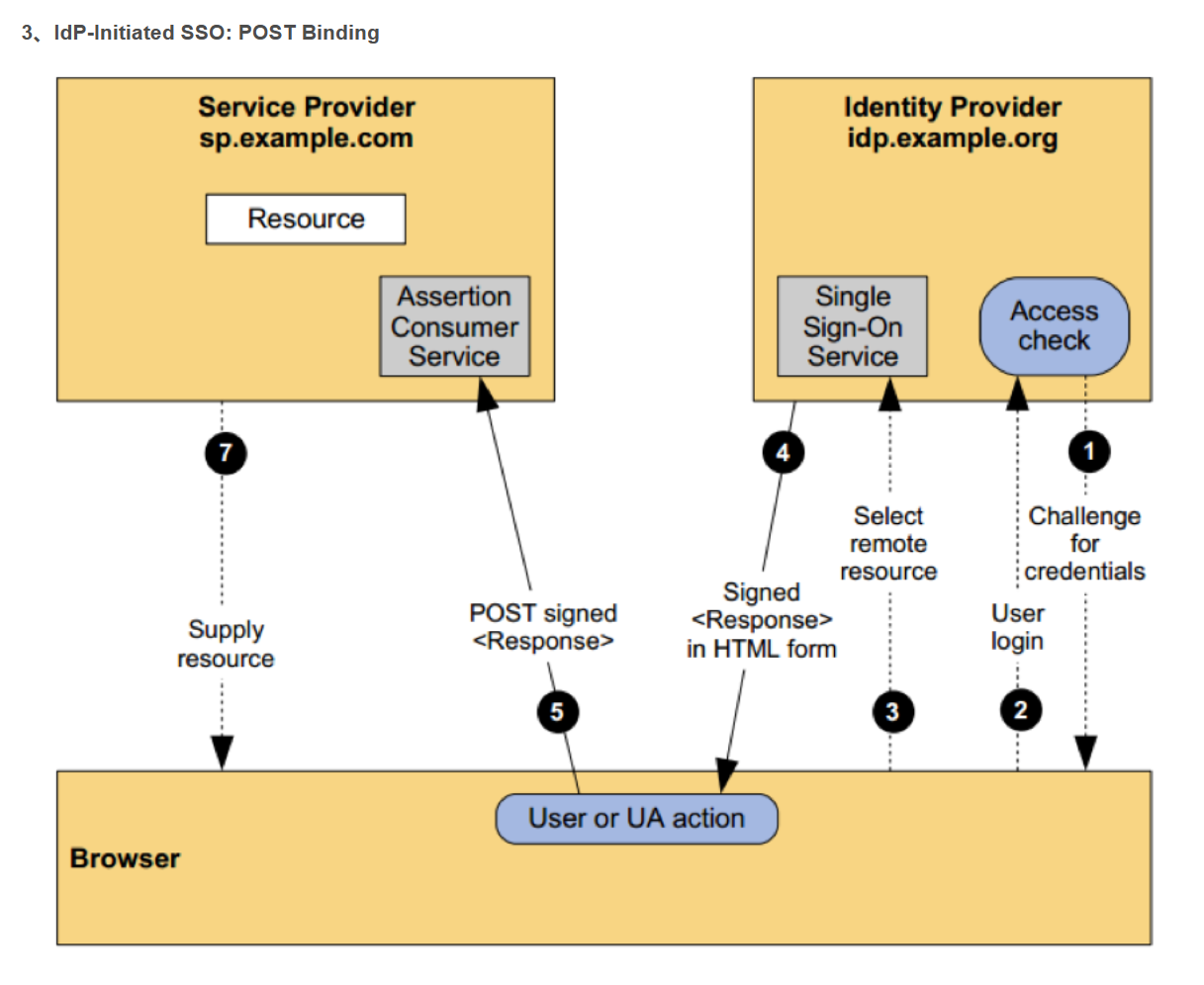
4.1. Azure管理台中操作如下图:
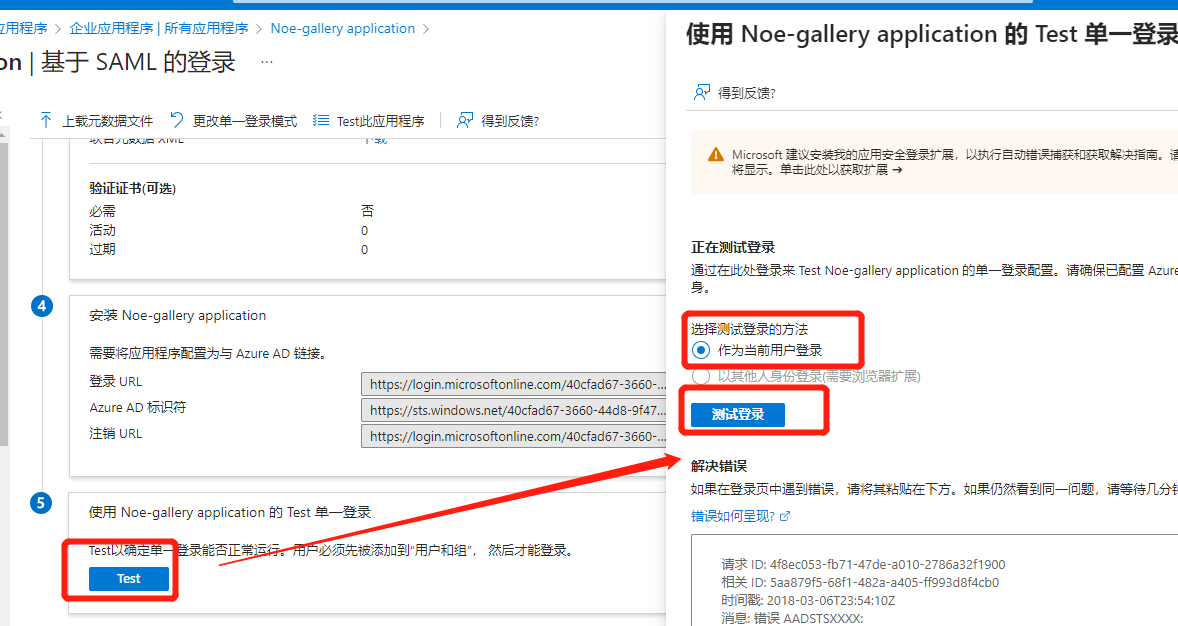
上图中,点击“测试登陆”,之后按照浏览器中显示内容,输入用户名密码,登录Azure成功后会重定向到4.2中Response.aspx页面;
4.2. 我的网站Response.aspx页面中处理如下(仅仅解析数据,不做验签):
点击查看源代码
`
//只解析XML中的用户唯一ID(NameID),不验签
protected void Page_Load(object sender, EventArgs e)
{
if (!IsPostBack)
{
try
{
string key = "SAMLResponse";
if (Request.Form.GetValues(key) != null)
{
string sourceSamlResponseXml = Request.Form.GetValues(key)[0];
string samlResponseXml = Encoding.UTF8.GetString(Convert.FromBase64String(sourceSamlResponseXml));
txtSAMLResponse.Text = samlResponseXml;
XmlDocument xmlDoc = new XmlDocument();
xmlDoc.LoadXml(samlResponseXml);
//命名空间
XmlNamespaceManager xmlNamespaceManager = new XmlNamespaceManager(xmlDoc.NameTable);
xmlNamespaceManager.AddNamespace("samlp", "urn:oasis:names:tc:SAML:2.0:protocol");
xmlNamespaceManager.AddNamespace("assertion", "urn:oasis:names:tc:SAML:2.0:assertion");
//只读取数据,不验证数据的完整性(不验签)
string loginNo = xmlDoc.SelectSingleNode("/samlp:Response/assertion:Assertion/assertion:Subject/assertion:NameID", xmlNamespaceManager).InnerXml;
Response.Write("SP端收到的用户名为:" + loginNo);
txtNameID.Text = loginNo;
}
else
{
Response.Write("非法访问,不能直接浏览本页面!");
}
}
catch (Exception ex)
{
Response.Write("异常:" + ex.Message);
}
}
}`
5、sp--->idp 模式测试:
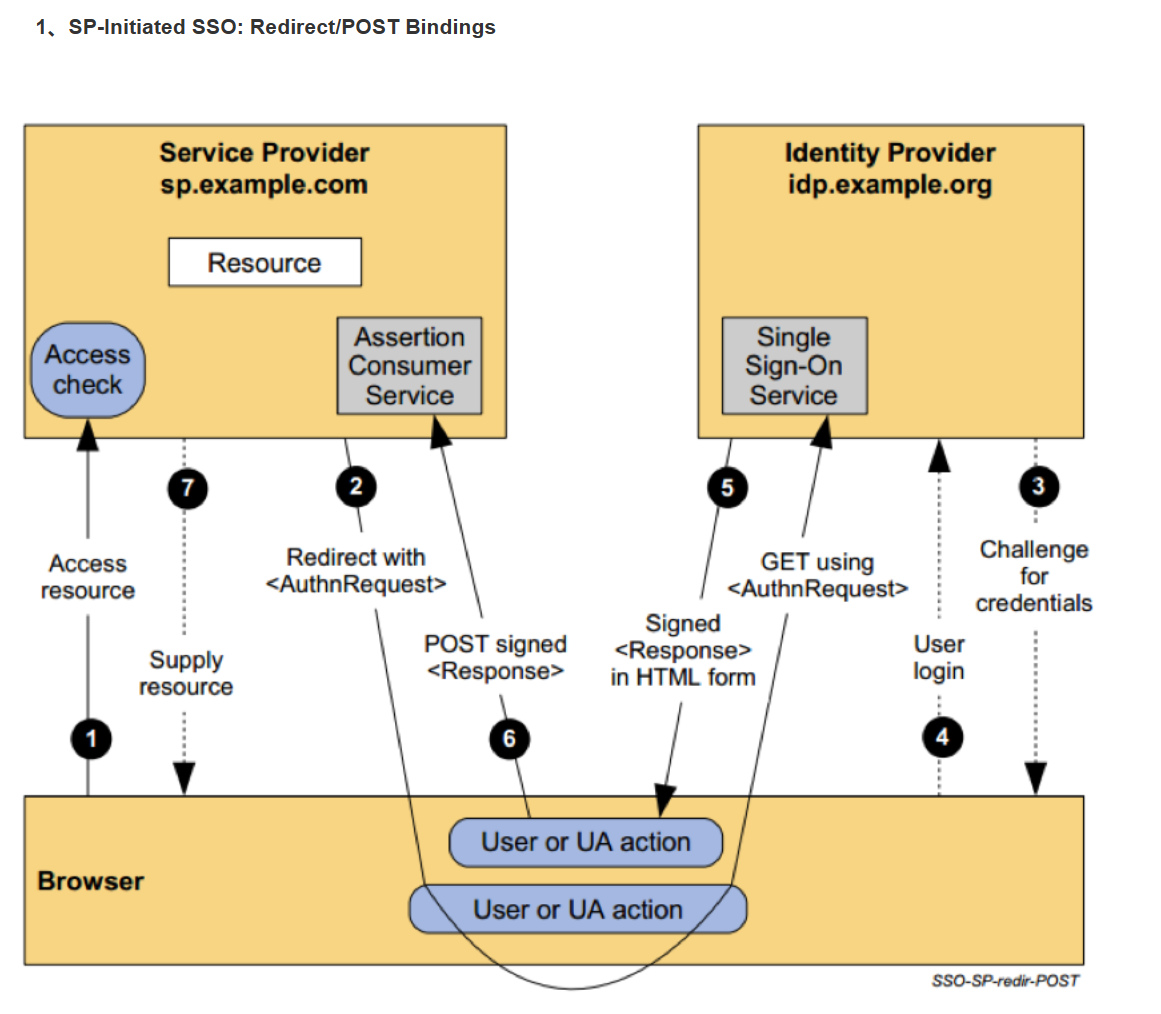
由我网站端发起:
5.1. 请求登陆的字符,点击查看源代码:
<samlp:AuthnRequest
xmlns="urn:oasis:names:tc:SAML:2.0:metadata"
ID="{0}"
Version="2.0" IssueInstant="2013-03-18T03:28:54.1839884Z"
xmlns:samlp="urn:oasis:names:tc:SAML:2.0:protocol" >
<Issuer xmlns="urn:oasis:names:tc:SAML:2.0:assertion">{1}</Issuer>
</samlp:AuthnRequest>
其中:
ID,Azure AD 使用此属性来填充返回的响应的 InResponseTo 属性。 ID 的开头不能是数字,因此常见的策略是在 GUID 的字符串表示形式前面加上类似于“ID”的字符串。 例如,id6c1c178c166d486687be4aaf5e482730 是有效的 ID。
Issuer,必须与 Azure AD 中云服务的一个 ServicePrincipalNames 完全匹配。 通常,此参数设置为应用程序注册期间指定的应用 ID URI。参照2中实体ID;
重定向URL,从进入左侧菜单“应用注册”后,最上面的“终结点”中获取;
5.2. 重定向时:
点击查看源代码
` protected void Button1_Click(object sender, EventArgs e)
{
string requestData = ReadData();
requestData = string.Format(requestData, "id" + Guid.NewGuid().ToString("N"), "http://XXXXXXX.com/Response.aspx", "https://sts.windows.net/40cfad67-3660-44d8-9f47-XXXXXXXXXXX");
string requestDataDo = EncodeSamlAuthnRequest(requestData);
string requestUr = "https://login.microsoftonline.com/40cfad67-3660-44d8-9f47-XXXXXXXXX/saml2?SAMLRequest=" + requestDataDo;
Response.Redirect(requestUr, false);//必须增加第二个参数false,否则报:线程正在终止 的异常;
}
//先压缩后转base64字符串
public static string EncodeSamlAuthnRequest(string authnRequest)
{
var bytes = Encoding.UTF8.GetBytes(authnRequest);
using (var output = new MemoryStream())
{
using (var zip = new DeflateStream(output, CompressionMode.Compress))
{
zip.Write(bytes, 0, bytes.Length);
}
var base64 = Convert.ToBase64String(output.ToArray());
return HttpUtility.UrlEncode(base64);
}
}
private string ReadData()
{
string returnData = string.Empty;
string filepath = Server.MapPath("") + "\\AuthnRequest.txt";
using (FileStream fs = new FileStream(filepath, FileMode.OpenOrCreate, System.IO.FileAccess.ReadWrite, FileShare.ReadWrite))
{
using (StreamReader sr = new StreamReader(fs, Encoding.UTF8))
{
returnData = sr.ReadToEnd().ToString();
}
}
return returnData;
}`
AuthnRequest.txt的内容:参照5.1中介绍;
5.3. 重定向后:
重定向后,浏览器跳转到Azure网站,按照提示输入用户名和密码,登陆后,会重定向到4中的回调Response.aspx页面中,此页面能解析到用户名NameID;
5.4. 注销请求:
点击查看源代码
` /// <summary>
/// 注销,Azure
/// </summary>
/// <param name="sender"></param>
/// <param name="e"></param>
protected void btnCancel_Click(object sender, EventArgs e)
{
if (string.IsNullOrEmpty(txtNameID.Text.Trim()))
{
Response.Write("NameID不能为空!");
return;
}
string requestData = ReadData();
DateTime dtUtc
= new DateTime(DateTime.Now.Year, DateTime.Now.Month, DateTime.Now.Day, DateTime.Now.Hour, DateTime.Now.Minute, DateTime.Now.Second, DateTimeKind.Utc);
string issueInstant = dtUtc.ToString("o");//这是具有 UTC 值和往返格式(“o”)的日期时间字符串。 Azure AD 需要这种类型的日期时间值,但不评估或使用该值。
requestData = string.Format(requestData, "id" + Guid.NewGuid().ToString("N"), issueInstant, "https://sts.windows.net/40cfad67-3660-44d8-9f47-XXXXXXXXX", txtNameID.Text.Trim());
string requestDataDo = EncodeSamlAuthnRequest(requestData);
string cancelRequestUrl = "https://login.microsoftonline.com/40cfad67-3660-44d8-9f47-XXXXXXXXX/saml2?SAMLRequest=" + requestDataDo;
Response.Redirect(cancelRequestUrl, false);//必须增加第二个参数false,否则报:线程正在终止 的异常;
}
public static string EncodeSamlAuthnRequest(string authnRequest)
{
var bytes = Encoding.UTF8.GetBytes(authnRequest);
using (var output = new MemoryStream())
{
using (var zip = new DeflateStream(output, CompressionMode.Compress))
{
zip.Write(bytes, 0, bytes.Length);
}
var base64 = Convert.ToBase64String(output.ToArray());
return HttpUtility.UrlEncode(base64);
}
}
private string ReadData()
{
string returnData = string.Empty;
string filepath = Server.MapPath("") + "\\LogoutRequest.txt";
using (FileStream fs = new FileStream(filepath, FileMode.OpenOrCreate, System.IO.FileAccess.ReadWrite, FileShare.ReadWrite))
{
using (StreamReader sr = new StreamReader(fs, Encoding.UTF8))
{
returnData = sr.ReadToEnd().ToString();
}
}
return returnData;
}`
LogoutRequest.txt文件内容:
<samlp:LogoutRequest xmlns="urn:oasis:names:tc:SAML:2.0:metadata" ID="{0}" Version="2.0" IssueInstant="{1}" xmlns:samlp="urn:oasis:names:tc:SAML:2.0:protocol">
<Issuer xmlns="urn:oasis:names:tc:SAML:2.0:assertion">{2}</Issuer>
<NameID xmlns="urn:oasis:names:tc:SAML:2.0:assertion">{3}</NameID>
</samlp:LogoutRequest>
5.5. 注销请求后的响应:
点击查看源代码
` protected void Page_Load(object sender, EventArgs e)
{
if (!IsPostBack)
{
try
{
string logoutBackRequestUrl = Request.Url.ToString();//对方请求我们的URL地址(带参数) 也就是我们自己的URL(对方加了参数)
string logoutBackSamlResponse = Request.QueryString["SAMLResponse"];
if (!string.IsNullOrEmpty(logoutBackSamlResponse))
{
string logoutBackSignature = Request.QueryString["Signature"];
string logoutBackSigAlg = Request.QueryString["SigAlg"];
string decCodeLogoutBackSamlResponse = InflateData(logoutBackSamlResponse);
txtSAMLResponse.Text = logoutBackSamlResponse;
txtSignature.Text = logoutBackSignature;
txtSigAlg.Text = logoutBackSigAlg;
txtDecCodeSAMLResponse.Text = decCodeLogoutBackSamlResponse;
////////////////////////最终的XML格式参照本目录中文件“LogoutResponse.txt”;
}
else
{
Response.Write("非法访问,URL中参数SAMLResponse值不能为空!");
}
}
catch (Exception ex)
{
Response.Write("异常:" + ex.Message);
}
}
}
/// <summary>
/// 解析:先通过base64转byte[],然后解压缩后得到byte[],然后转成普通 字符串;
/// </summary>
/// <param name="compressedData"></param>
/// <returns></returns>
public string InflateData(string logoutBackSamlResponse)
{
byte[] compressedData = Convert.FromBase64String(logoutBackSamlResponse);
if (compressedData == null) return null;
int deflen = compressedData.Length * 2;
byte[] buffer = null;
string deSamlResponseXml = "";
using (MemoryStream stream = new MemoryStream(compressedData))
{
using (DeflateStream inflatestream = new DeflateStream(stream, CompressionMode.Decompress))
{
using (MemoryStream uncompressedstream = new MemoryStream())
{
using (BinaryWriter writer = new BinaryWriter(uncompressedstream))
{
int offset = 0;
while (true)
{
byte[] tempbuffer = new byte[deflen];
int bytesread = inflatestream.Read(tempbuffer, offset, deflen);
writer.Write(tempbuffer, 0, bytesread);
if (bytesread < deflen || bytesread == 0) break;
}
uncompressedstream.Seek(0, SeekOrigin.Begin);
buffer = uncompressedstream.ToArray();
deSamlResponseXml = Encoding.UTF8.GetString(buffer);
}
}
}
}
return deSamlResponseXml;
}`
注销请求后的响应的最终的XML格式 “LogoutResponse.txt”的内容:
`<samlp:LogoutResponse ID="_3f6da426-39ca-45c1-8c2c-363746bbe4b0" Version="2.0" IssueInstant="2023-04-24T05:02:19.752Z" Destination="https://xxxxxx.com/Logout.aspx" InResponseTo="idf237c5991545481eb6fce7825a4171b0" xmlns:samlp="urn:oasis:names:tc:SAML:2.0:protocol">
<Issuer xmlns="urn:oasis:names:tc:SAML:2.0:assertion">https://sts.windows.net/40cfad67-3660-44d8-9f47-XXXXXXXXXXX/</Issuer>
<samlp:Status>
<samlp:StatusCode Value="urn:oasis:names:tc:SAML:2.0:status:Success" /></samlp:Status>
</samlp:LogoutResponse>`


